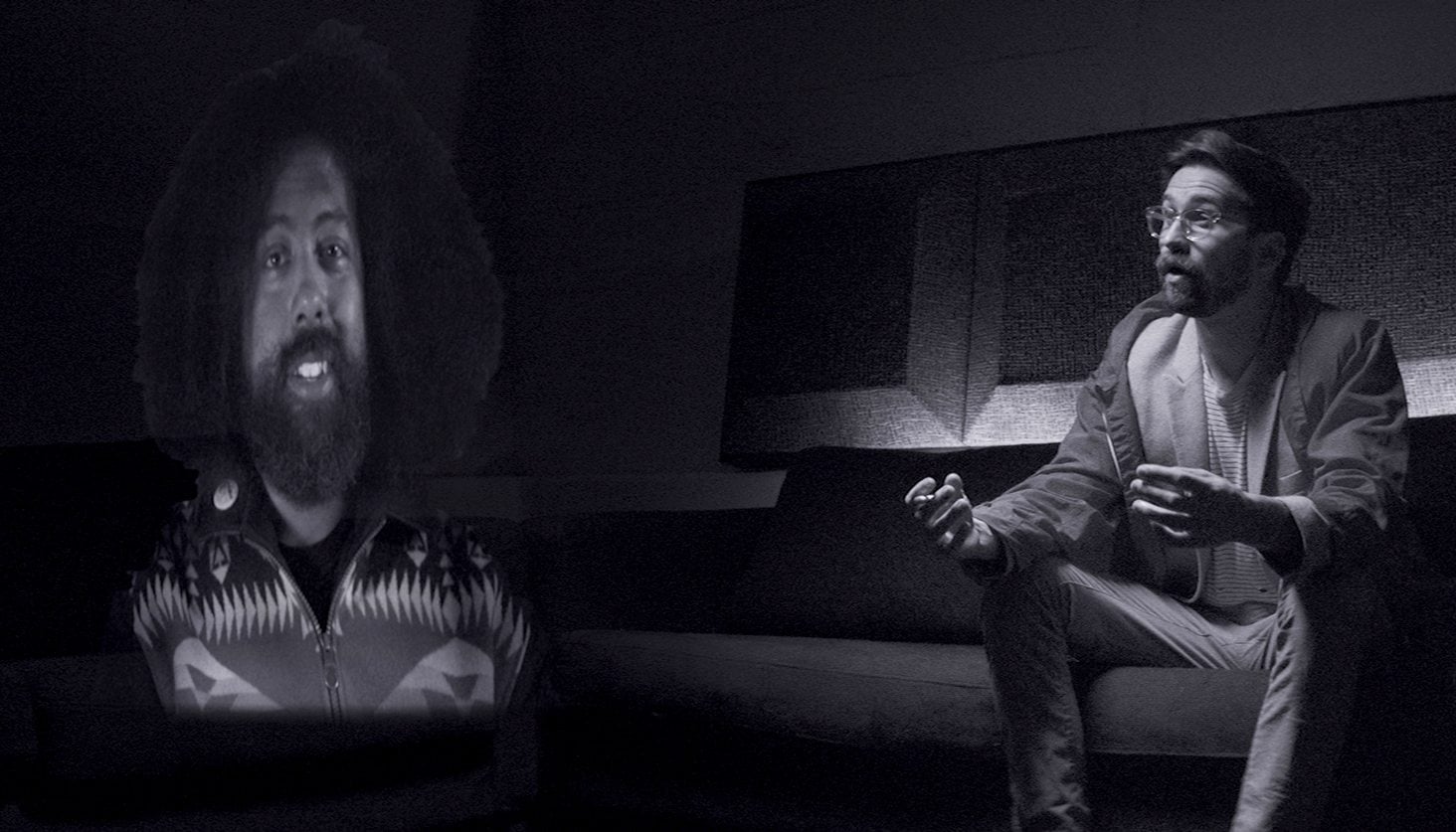According to Benjamin Dickinson, the 30-year-old wunderkind director, co-writer and star of “Creative Control,” the idea for his mildly sci-fi-ish romantic melodrama came to him in a flash.
“The first image I had for this movie,” he told IndieWire, “was the scene that happens right at the beginning where two characters are having sex … and then he picks up this phone in the middle of the act and takes a picture of it.”
There’s a similar scene later in the movie in which Dickinson’s character — a stressed-out New York ad man named David — is engaged in a sexual encounter of another sort: with the digital avatar of his best friend’s girlfriend, Sophie, a partner who exists, for the purposes of this transaction, only on the screen of the “augmented-reality” glasses for which he is handling the marketing campaign.
While David doesn’t pull out a cellphone there, that scene — in which he is, by definition, flying solo — gives new meaning to the term “selfie.” There’s a whiff of autoerotic indulgence that carries over to the entire film, which despite its handsome black-and-white aesthetic and gloss of social critique seems a bit too smugly self-satisfied for its own good.
At times, I felt like I was out on a date with “Creative Control,” only to find the movie kept checking its hair in the mirror every five minutes.
Never mind that the preposterousness of that scene’s central premise: that the virtual reality technology is so good that David comes to believe that he has actually had sex with Sophie (Alexia Rasmussen). Maybe David’s senses have been addled by those pills he keeps popping by the handful. They look like some sort of breakfast cereal, and he gobbles them down accordingly.
There is something to chew on here: the self absorption of a generation that seems to have substituted social media for social engagement. Or maybe the power of advertising. David’s campaign for the glasses involves a commercial shot by an insufferably inscrutable hipster (Reggie Watts, playing himself).
But Dickinson’s screenplay, which he wrote with Micah Bloomberg, a sound mixer on such meatier films as “Mistress America” and “99 Homes,” doesn’t bite deeply into either of those substantial themes. Instead, it seems content to concern itself with the sort of superficial romantic entanglements one might find in any number of garden-variety rom-coms.
David lives with Juliette (Nora Zehetner), who engages in an affair with a fellow yoga instructor (Paul Manza), even as David is fooling around with the virtual-reality version of Sophie, whose boyfriend (Dan Gill) is a serial philanderer.
The fact that one of these liaisons is taking place on a souped-up version of Google Glass does little to elevate — or even examine — what is, in essence, a roundelay of meaningless connection.




